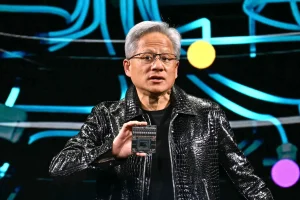AI Regulation Takes a Hit as Chevron Deference Falls

The U.S. Supreme Court has made a landmark decision by striking down the 40-year-old Chevron deference. This ruling, which once allowed federal agencies to interpret ambiguous congressional laws, has been a cornerstone in regulatory practices. With its removal, the future of AI regulation in the United States faces significant uncertainty.
The implications are vast and complex. Agencies can no longer make their own rules when Congress leaves gaps in legislation. Instead, courts will now interpret these ambiguities. This change demands that Congress create highly specific regulations, a challenging task that has already proven difficult in the quickly advancing world of AI.
Supreme Court Strikes Down Chevron Deference
The U.S. Supreme Court has struck down a significant ruling known as Chevron deference. This 40-year-old rule had required courts to defer to federal agencies’ interpretations of ambiguous congressional laws. Now, courts will need to use their own judgment instead.
Implications for AI Regulation
This decision has widespread implications, especially for AI regulation. Previously, agencies could make rules when Congress left aspects of laws unclear. With this shift, Congress itself will have to write highly specific regulations to withstand legal scrutiny.
Challenges for Congress
Congress already had difficulties in passing a basic AI policy framework. With the new requirement to be highly specific, this task becomes even harder. According to Axios’ Scott Rosenberg, Congress must now predict future scenarios and write laws accordingly.
Justice Elena Kagan highlighted AI during the oral arguments. She questioned whether courts or agencies should fill gaps in legislation. Now, courts will handle this, making AI regulation more complex and possibly leading lawmakers to give up on AI bills.
Google’s Environmental AI Costs
Google released its 2024 Environmental Report, describing efforts to apply technology to environmental issues. However, it did not address the energy usage of its AI. This is significant because AI is notoriously power-hungry.
By not disclosing its AI’s energy consumption, Google leaves a crucial question unanswered. This omission has garnered criticism from environmental experts and concerned citizens alike.
The report focuses on other environmental contributions and improvements but overlooks the energy demands of AI technology. As AI continues to grow, its environmental impact becomes an increasingly pertinent issue.
Figma Disables ‘Make Design’ Feature
Figma’s CEO, Dylan Field, announced that the ‘Make Design’ AI feature will be temporarily disabled. This decision came after allegations that it was copying designs from Apple’s Weather app.
This situation raises important questions about intellectual property and the ethical use of AI in design. Figma’s move to disable the feature shows the complexities involved in integrating AI into creative industries.
Meta’s AI Labeling Issue
Meta faced backlash for improperly labeling real photos as ‘Made with AI’. The company initially tagged these photos starting in May.
After receiving numerous complaints from photographers, Meta decided to change the label to ‘AI info’. This adjustment aims to address the concerns from critics.
The labeling issue underscores the challenges in maintaining accuracy and transparency in AI applications. It highlights the need for better controls and checks in AI-generated content.
Robot Animals for the Elderly
New York state is distributing robot animals to help combat loneliness among the elderly. The initiative addresses an ‘epidemic of loneliness’ affecting many senior citizens.
The state has chosen robot cats, dogs, and birds to serve as companions for the elderly. These robotic pets can provide emotional support and companionship.
This approach has gained praise for its innovative use of technology to solve social issues. However, it also raises questions about the long-term effects and viability of robotic companionship.
AI in Apple’s Vision Pro
Apple is expanding its AI capabilities beyond iPhones, iPads, and Macs. The company plans to introduce AI features to its Vision Pro mixed-reality headsets. This step aligns with Apple’s broader AI strategy.
According to Mark Gurman from Bloomberg, this move will likely enhance the functionality and user experience of the Vision Pro.
By integrating AI into its mixed-reality headsets, Apple aims to stay ahead in the rapidly evolving tech landscape. This integration could set new standards for how AI is utilized in consumer electronics.
Understanding Text-Generating Models
Text-generating models like GPT-4O have become common in tech applications. Despite their popularity, there is still much to learn about how these models understand and generate human-like text.
Researchers at Northeastern University studied tokenization, the process of breaking down text into units called tokens. They found that models develop an implicit vocabulary mapping these tokens to meaningful units.
This research could help us better understand lexical representations in AI models. It also underscores the intricate processes involved in AI text generation and the continuous need for in-depth study.
Meta’s 3D Asset Generation Models
Meta has developed new models to create 3D assets from text descriptions. These models, named AssetGen and TextureGen, work together in a pipeline called 3DGen.
The 3DGen pipeline can generate high-quality 3D shapes in about 50 seconds. It uses text prompts to create detailed and textured 3D objects suitable for use in various applications.
Meta claims these models are ‘state-of-the-art’ and could be used in metaverse game development. This technology highlights Meta’s commitment to advancing AI capabilities in creative projects.
AI regulation in the United States is entering uncharted waters. With the fall of Chevron deference, the responsibility of interpreting unclear laws now rests with the courts, not federal agencies.This monumental change introduces new complexities and uncertainties in drafting effective AI legislation.
While companies like Google and Meta advance their AI technologies, significant challenges remain. From energy usage disclosures to ethical quandaries and labeling issues, the journey ahead is complicated. As lawmakers and industries navigate these turbulent waters, the urgency and importance of precise legislation have never been greater.





